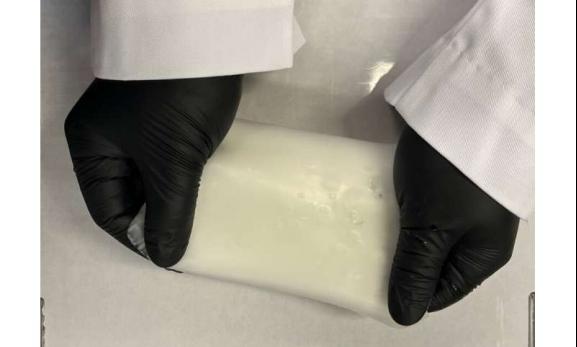Science Fiction Network, January 13 (Zhu Xiwei) If electric vehicles want to become mainstream, they need batteries with lower costs, safer and longer batteries. Researchers from the Georgia Institute of Technology may have discovered a material that can replace traditional lithium-ion batteries — rubber.

Synthetic rubber is widely used in consumer products and advanced technology products such as wearable electronic devices and soft robots with superior mechanical properties. The researchers found that when the rubber material is made into a 3D structure, lithium ions can be transmitted quickly, with super mechanical toughness, resulting in longer battery life.
In conventional lithium-ion batteries, ions move through a liquid electrolyte. However, the battery itself is unstable, and even the slightest damage can penetrate into the electrolyte, causing the battery to explode or catch fire. Safety concerns have forced the battery industry to turn to developing solid-state batteries.
The research team found that rubber-based organic polymers performed better than other materials. Solid polymer electrolytes are constantly attracting attention because of their low cost, non-toxic, soft and other advantages. However, conventional polymer electrolytes do not have sufficient ionic conductivity and mechanical stability to guarantee reliable operation of solid-state batteries.
The use of rubber electrolytes can solve common problems of appeal, namely slow transmission of lithium ions and poor mechanical properties. In addition, the rubber electrolyte can be made at low temperatures through a simple polymerization process, creating a strong and smooth interface on the electrode surface, allowing solid-state batteries to operate reliably even at room temperature.
Now, researchers are looking for ways to improve battery performance to reduce battery charging time. As of now, the battery performance has tripled.